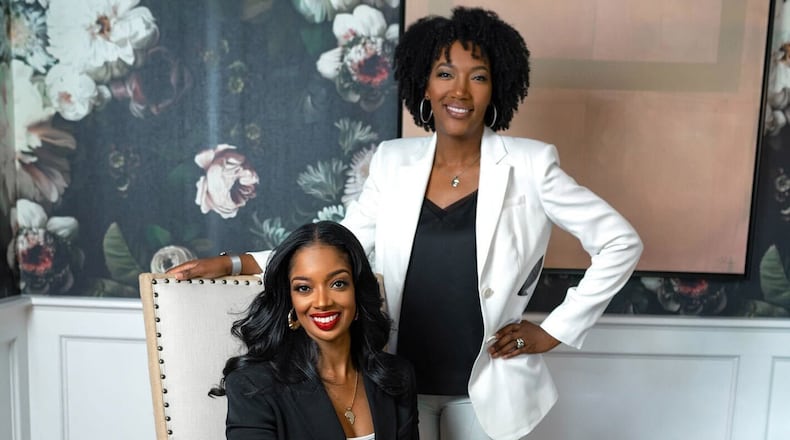Fearless Fund, the Atlanta-based venture capital firm started by Black women to invest in women of color, is asking a federal appeals court to uphold a lower court’s September ruling that would allow its nonprofit foundation to continue administering a grant program that a conservative group alleges is racially discriminatory.
In a brief filed Wednesday night with the Eleventh Circuit Court of Appeals, Fearless argued the plaintiff in the case, the American Alliance for Equal Rights, was trying to pervert a seminal, Reconstruction-era civil rights law to force the Fearless Foundation to espouse its “colorblind-at-all-costs viewpoint.”
“Forcing the Foundation to adopt race-neutral criteria would disable the Foundation from conveying its message on the precise topic it seeks to address: economic disadvantages faced by Black women,” Fearless’ lawyers wrote, emphasizing the last two words in italics.
Historically, Black women entrepreneurs receive a fraction of the funding other founders get. Between 2009 and 2017, only 0.0006% of venture funding went to businesses started by Black women, according to nonprofit advocacy group Digitalundivided. In 2021, Black female founders only received 0.05% of U.S. venture capital funding, according to TechCrunch.
The Alliance was started by Edward Blum, a key activist in the successful challenge of affirmative action in college admissions. The group initially sued Fearless in early August, claiming its Fearless Strivers Grant Contest violates the Civil Rights Act of 1866. That landmark law prohibits discrimination based on race when making and enforcing contracts. The Alliance says Fearless is entering into a discriminatory contract with the applicant because the grants are only for Black women.
But Fearless says it’s not actually a contract, it’s a charitable donation, and that type of giving is protected under the First Amendment. U.S. District Court Judge Thomas Thrash agreed with that argument in a hearing in late September and denied the Alliance’s motion for a preliminary injunction. The Alliance immediately appealed.
Winding through the courts
On Sept. 30, a three-judge panel from the 11th Circuit put a temporary injunction in place while the appeals process played out. Two of the judges sided with the Alliance, saying “the plaintiffs have established an irreparable injury” and called the grant program “racially exclusionary.”
The dissenting judge who sided with Fearless said it was “a perversion of Congressional intent” to use the post-Civil War law against the program.
In a brief filed last month, the Alliance alleged that by only allowing Black women to apply, what Fearless is doing today is essentially what white business owners after the Civil War did in discriminating against Black Americans.
On Wednesday, Fearless responded to those arguments, saying “[t]he Alliance opposes race-conscious remedial programs in all forms and exists for the sole purpose of attacking them in the courts.”
As it had previously to Judge Thrash, Fearless contended the Alliance doesn’t have standing to bring this lawsuit in part because it doesn’t name the three anonymous white and Asian female business owners it says it is representing. Fearless also argued that the Reconstruction-era law the Alliance invoked doesn’t apply to the grant program.
Those two arguments didn’t convince Thrash, who wrote in his September ruling that the Alliance likely did have standing and that the group had shown the grant program was also a contract that was covered under the civil rights law.
But Thrash said the program was clearly intended to send the message that “Black women-owned businesses are vital to our economy,” and it was protected by the First Amendment. He also said the Alliance did not meet its burden to show a clear likelihood of success on the merits at that stage.
Fearless and the Alliance will now have the chance to make their arguments to a three-judge appeals panel on Jan. 31 in Miami after the venture capital fund’s lawyers asked for an expedited hearing.
The Atlanta Journal-Constitution and Report for America are partnering to add more journalists to cover topics important to our community. Please help us fund this important work at ajc.com/give
About the Author
Keep Reading
The Latest
Featured



